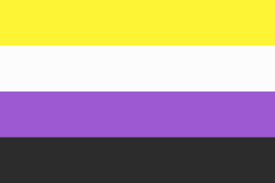International Non-Binary People’s Day 14 July 2022
International Non-Binary People’s Day is a day to celebrate non-binary people and raise awareness of their experiences.
How can workplaces celebrate International Non-Binary People’s Day?

You could:
- – Watch the TikTok live with Bee Illustrates on Thursday 14th July 6-7pm
- – Watch this webinar on advancing non-binary inclusion in the workplace
- – Read this article on issues that affect LGBTQ+ women and non-binary people since the pandemic
- – Be an ally to non-binary people
FAQs
Q What does non-binary mean?
A Non-binary is an umbrella term for people whose gender identity doesn’t sit comfortably with ‘man’ or ‘woman’. Non-binary identities are varied and can include people who identify with some aspects of binary identities, while others reject them entirely.
Q Is non-binary the same as trans?
A No. While the term trans generally encompasses people whose gender is not the same as, or does not sit comfortably with, the sex they were assigned at birth, some non-binary people don’t see themselves as trans. It’s always important to respect the language someone uses to define themselves.
Trans people may describe themselves using one or more of a wide variety of terms, including (but not limited to) transgender, transsexual, genderqueer (GQ), gender-fluid, non-binary, gender-variant, crossdresser, genderless, agender, nongender, third gender, bi-gender, trans man, trans woman, trans masculine, trans feminine and neutrois.
Q What is the difference between gender identity and gender expression?
A To understand non-binary gender identities better, it’s vital to understand the difference between gender identity and gender expression. Gender identity refers to a person’s clear sense of their own gender. This is not something which is governed by a person’s physical attributes. Gender expression is how you express yourself and just like everyone else, non-binary people have all sorts of ways to express themselves and their identity. They can present as masculine, feminine or in another way, and this can change over time. But none of these expressions make their identity any less valid or worthy of respect.